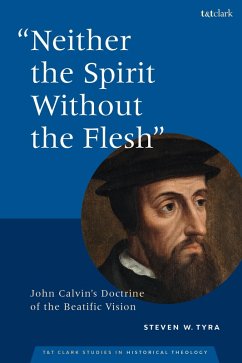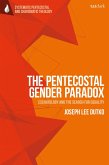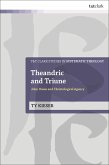This book claims that John Calvin developed "Greek" doctrines of the interim state of souls, resurrection, and beatific vision through his reading of ancient Christian sources like Irenaeus of Lyons. "Greek" had been a technical term in Western theology since at least the 12th century to denote heterodox eschatology. Thomas Aquinas had employed it in that sense, and early modern Catholics like Robert Bellarmine and Pierre Coton in turn applied it to Calvin.
The book demonstrates that, in this respect at least, Calvin's opponents were correct: he was a "Greek." However, it questions whether that fact should lead modern theologians to dismiss him as a resource for contemporary reflection. Calvin's deep respect for and continuity with early Christian voices may serve as a positive model for theologians today, particularly in the Reformed tradition. By the same token, Reformed thinkers who seek inspiration from medieval scholasticism may find their relationship to Calvin complicated by the case presented here.
The book demonstrates that, in this respect at least, Calvin's opponents were correct: he was a "Greek." However, it questions whether that fact should lead modern theologians to dismiss him as a resource for contemporary reflection. Calvin's deep respect for and continuity with early Christian voices may serve as a positive model for theologians today, particularly in the Reformed tradition. By the same token, Reformed thinkers who seek inspiration from medieval scholasticism may find their relationship to Calvin complicated by the case presented here.









